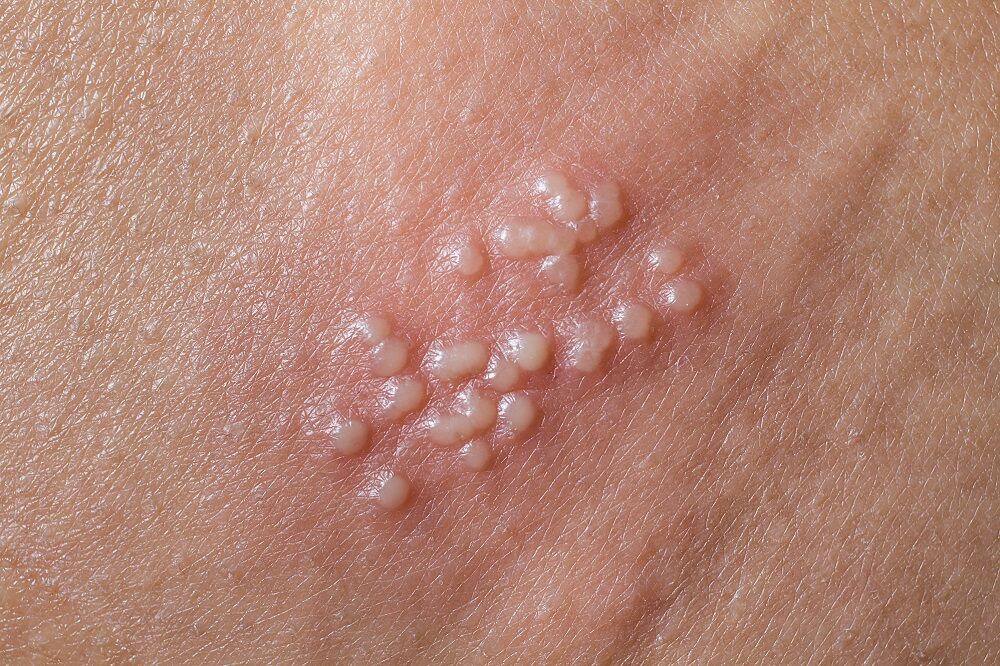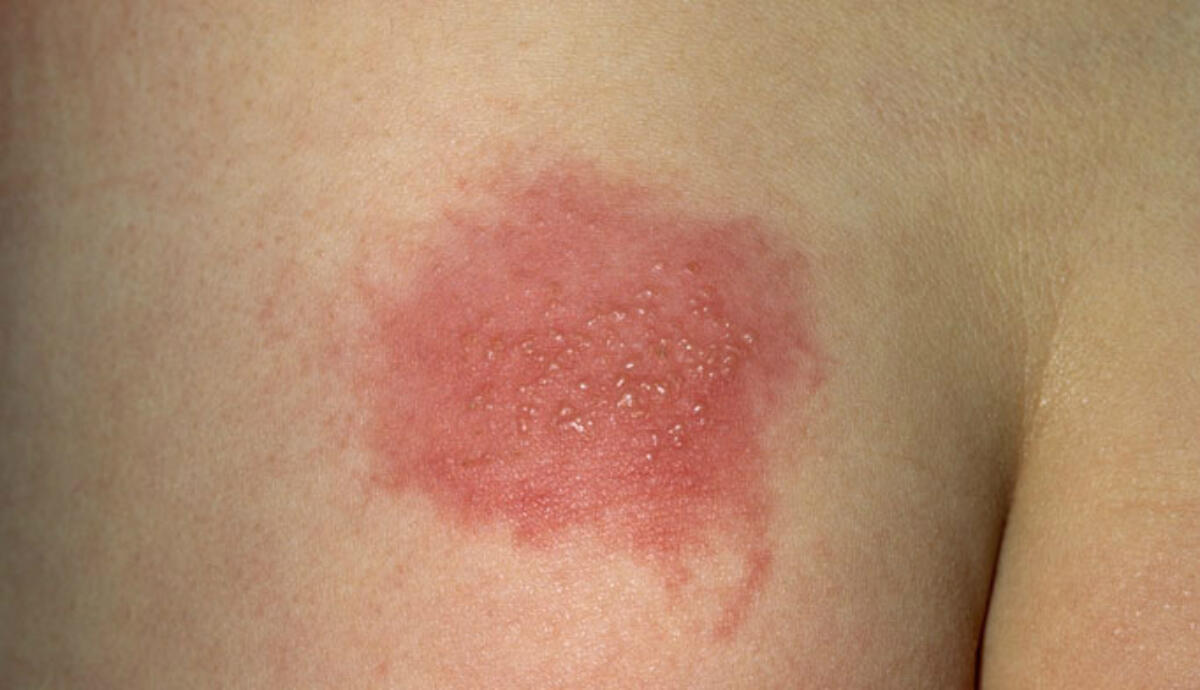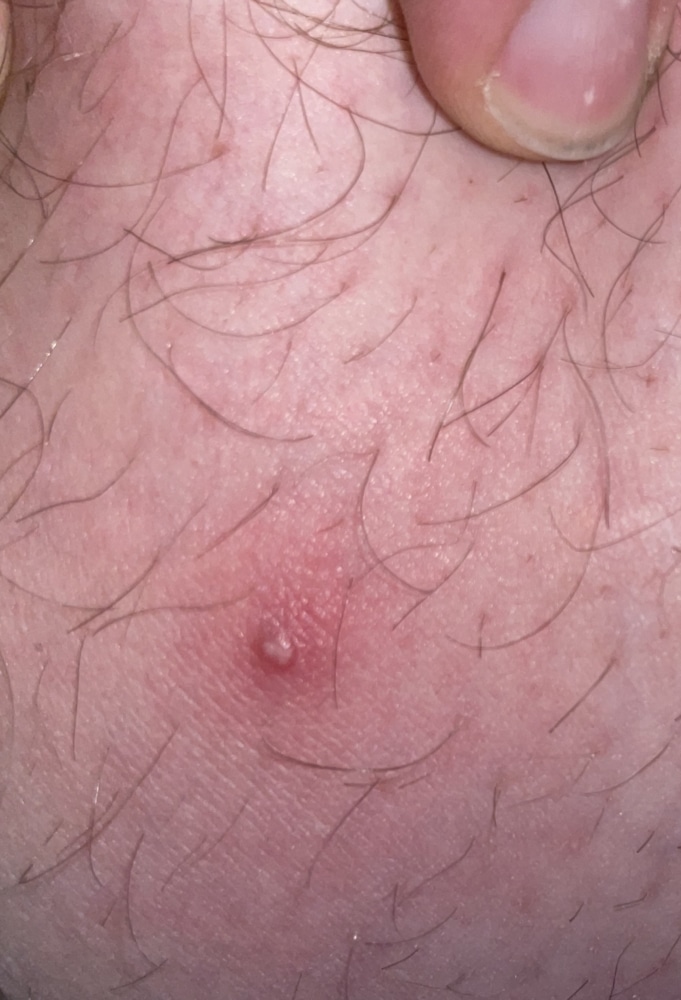Why You Should Go To A Sexual Health Clinic
You can see a GP, but they’ll probably refer you to a sexual health clinic if they think you might have genital herpes.
Sexual health clinics treat problems with the genitals and urine system.
Many sexual health clinics offer a walk-in service, where you do not need an appointment.
They’ll often get test results quicker than GP practices and you do not have to pay a prescription fee for treatment.
What Is Facial Herpes
Facial herpes is very common and is also known as cold sores, fever blisters, sun blisters, oro-facial herpes, herpes labialis and herpes febrilis. Facial herpes is characterised by groups of fluid-filled blisters that appear on red swollen areas of the skin or on the mucous membranes. A burning sensation is often present just before the skin lesions develop. The areas can be tender and painful. The blisters heal without scarring but they have a tendency to return.
These episodes are caused by a very common virus infection known as herpes simplex virus , of which there are two types:
Although cross-infection can occur it is more common from the face-to-genitals route than from the genitals to the facial area.
How Can I Confirm Whether I Have Genital Herpes
Herpes doesnt always cause symptoms, so your best bet is to make an appointment with a healthcare provider. They might be able to diagnose you just by looking at your symptoms.
They may also take a fluid sample from a blister and test it or have you do a blood test.
Youll likely be asked some questions about your sexual history. Its very important that youre honest in your answers. This will help to determine whether you should be tested for any other STIs while youre there.
Remember, theres no cure for herpes. But antiviral medication can help to prevent the virus from reproducing and reduce the number of outbreaks you have. This can also reduce your risk of passing the virus to others.
Common antiviral medications used for herpes include:
Also Check: How Does It Take For Herpes To Show Up
What Causes Genital Herpes How Does It Spread
The herpes viruses enter the skin or mucous membrane through tiny, even microscopic, breaks in the tissue when there is skin-to-skin contact with an infected person. Because an infected person may spread the disease even when he or she does not have signs or symptoms of herpes, avoiding sexual contact with someone with active blisters does not guarantee protection against the infection. Even normal appearing skin can spread the infection. Clothing that touches genital skin ulcers may transmit herpes simplex virus to others that wear the clothing.
The average incubation period after exposure is 4 days, but symptoms may develop anywhere from 2 to 12 days after you have been exposed to the virus.
Individual outbreaks of herpes vary among affected people in terms of their frequency and severity. Outbreaks can be related to the function of the immune system and are typically worse in cases in which the immune system is suppressed. For example, at times of physical or emotional stress, during illness, or when taking certain medications, genital herpes outbreaks may be more likely.
Read Also: Can You Catch Genital Herpes From Kissing
Tests That Are Not Recommended

Some clinics will use diagnostic tools other than the recommended tests. Among these, two are generally NOT recommended:
Neither of these are specific tests for herpes.
A Pap smear is not a specific test for herpes and so the virus can go overlooked or be misdiagnosed, especially if no active symptoms are present at the time of the smear. When testing for herpes it is important that your Doctor perform a test specifically for the herpes virus.
You May Like: How To Wash Genital Herpes
How Common Is Herpesand Who Is At Risk
Both types of herpes are quite common. The World Health Organization reports thatâgloballyâan estimated 67% of the population has HSV-1. As for HSV-2, estimates suggest that 13% of the population has it. Most of the people in both groups are asymptomatic and many do not know they have herpes.
Women tend to have a higher risk of HSV-2, the most common cause of genital herpes, compared to men. This is because transmission of the herpes virus occurs more effectively from men to women than vice versa. Having multiple sex partners also increases oneâs risk of getting herpes.
Dont Miss: What Percentage Of The Us Has Herpes
How To Test For Herpes: Diagnosis And Testing
Herpes simplex is a virus that may or may not be sexually transmitted.
There are 2 types which can cause painful blisters and ulcers.
Most often, HSV-1 causes oral herpes , and most often, HSV-2 causes genital lesions.
These can be interchangeable though, and sometimes genital lesions may be caused by HSV-1 or oral lesions can be caused by HSV-2.
Herpes simplex affects an estimated 3.7 billion people across the world, including nearly half of all adults under age 50 in the United States.
Understanding the signs and symptoms of herpes can help you get proper medical care and manage outbreaks.
This article covers the differences between HSV-1 and HSV-2, as well as testing, treatment, precautions, prevention, and how to know when you need to see a doctor.
Recommended Reading: How To Know If You Have Oral Herpes
Heres Why Doctors Dont Usually Test For Herpes
Its basically a SELF mantra at this point: Getting tested for sexually transmitted infections is hella important. Is it the most delightful way to spend your time? No. Is it a vital part of looking after your health, sexual and otherwise? Absolutely.
When you go in for routine STI testing, you might realize that your doctor doesnt test you for herpes. Whats that about? As it turns out, testing for herpes isnt as straightforward as testing for something like chlamydia or gonorrhea. Here, doctors explain why herpes isnt usually included on STI panels.
Taking A Genital Or Oral Herpes Test
Testing for genital and oral herpes may be performed with a blood sample or a sample of fluid swabbed or scraped from a sore. Both types of samples are collected by a health professional when conducted at a doctors offices, clinic, or community organization.
If a patient is experiencing an outbreak, a doctor can collect a sample for testing by swabbing or scraping a sore. Material from the sore can be used for a herpes viral culture, PCR testing,
A Tzanck smear or an antibody test.
If a patient is not currently experiencing an outbreak, a blood test may be used to identify HSV antibodies. If a doctor suspects a brain infection with HSV, a lumbar puncture may be performed to obtain a sample of cerebrospinal fluid for analysis.
Read Also: How Do You Contract Herpes
Can I Take The Test At Home
At-home tests are available to test for evidence of an HSV infection. At-home herpes testing typically detects HSV antibodies in a self-collected sample of blood and may require additional follow-up if preliminary results are positive. At-home herpes tests can be obtained online or at a local pharmacy.
How To Know If You Have Herpes
This article was medically reviewed by Lacy Windham, MD. Dr. Windham is a board certified Obstetrician & Gynecologist in Tennessee. She attended medical school at the University of Tennessee Health Science Center in Memphis and completed her residency at the Eastern Virginia Medical School in 2010, where she was awarded the Most Outstanding Resident in Maternal Fetal Medicine, Most Outstanding Resident in Oncology, and Most Outstanding Resident Overall.There are 11 references cited in this article, which can be found at the bottom of the page. This article has been viewed 842,512 times.
Research shows that around 1 out of every 6 people has some form of herpes.XTrustworthy SourceCenters for Disease Control and PreventionMain public health institute for the US, run by the Dept. of Health and Human ServicesGo to source The herpes simplex viruses are the viruses responsible for oral and genital herpes infections, and they can cause sores, itching, painful urination, and vaginal discharge. Although doctors can treat symptoms, ease pain, and reduce the possibility of spreading the virus, herpes cannot be cured. Studies show that you can find out if you have herpes by examining high risk behaviors, recognizing the symptoms, and getting tested by a medical professional.XTrustworthy SourceFamilyDoctor.orgFamily-focused medical advice site run by the American Academy of Family DoctorsGo to source
Don’t Miss: How Did Dr Sebi Cure Herpes
When Should You Get Tested
The best time to get tested for herpes varies, depending on what’s happening.
If you’re exhibiting symptoms of an initial outbreak which include pain, itching and redness of the affected location fatigue, fever and chills and, ultimately, painful sores or ulcers it’s best to see a healthcare professional about getting tested.
However, if you think you’ve been exposed to the virus and aren’t yet exhibiting symptoms, HSV may take some time before being able to show results on a test. While the exact time frame is unknown and varies from person to person, two weeks is usually enough time to yield accurate test results.
Most people become concerned about being infected with the herpes virus after contact with a potentially infected person. Often, simple things like kissing someone with a visible cold sore or facial acne around the lips can cause concern about HSV-1.
For genital herpes, most people become concerned about potentially being infected after sexual contact with a person that shows symptoms of herpes. This can include oral sex with someone that has cold sores, which can potentially spread to the genitals.
Since herpes is asymptomatic in many people, you could be infected with the virus even if you dont have any symptoms.
Can The Virus Be Transmitted During Childbirth

According to
- lack of appetite
- shooting pain at the site of the infection
You may notice some tingling, burning, or itching at the site of the infection before small, painful blisters appear. There could be one blister or a small cluster. These blisters will eventually burst and crust over before they begin to heal.
The blisters that develop during a primary infection may take to fully heal. These blisters can still transmit the virus until theyve healed completely.
Sores often itch, and genital sores may cause pain during urination.
Also Check: How Can I Prevent My Partner From Getting Herpes
Is Alzheimers Disease Related To Hsv
Alzheimers disease is a progressive brain disease that develops as a result of a complex series of events occurring in the brain over a long period of time. The causes of Alzheimers disease may include genetic, environmental, and other factors. Several different factors have been statistically linked to Alzheimers disease, including HSV-1 infection. However, some investigations suggest that viruses other than HSV-1 may influence Alzheimers disease. More research is needed to determine whether or not there is a causal link between HSV-1 infection and Alzheimers disease.
Blood Tests For Asymptomatic Herpes
If you do not have an active outbreak of herpes blisters, your medical provider can still test to determine if you have previously been infected with either herpes simplex virus.
But, the incubation period for herpes is up to 12 days, so your doctor may recommend waiting to perform a blood test until it has been at least that long since you were exposed to the virus.
If you are tested too soon after exposure, you may get a false negative result because the immune system has not yet had time to produce antibodies
Blood tests can be done that look for antibodies to either HSV-1 or HSV-2.
The results can indicate whether you have been exposed to one or both viruses.
It is not possible to know from a blood test whether you are currently contagious with herpes, only that you have previously been infected.
It is also possible to get at-home testing kits.
These use a lancet to prick your finger and take a small blood sample, which can identify whether you have been exposed to HSV-1 or HSV-2.
If you want an at-home kit, make sure you ask your medical provider for a recommendation, as some test kits do not check for both HSV-1 and HSV-2.
Don’t Miss: How Does Someone Get Herpes
Treatment If The Blisters Come Back
Go to a GP or sexual health clinic if you have been diagnosed with genital herpes and need treatment for an outbreak.
Antiviral medicine may help shorten an outbreak by 1 or 2 days if you start taking it as soon as symptoms appear.
But outbreaks usually settle by themselves, so you may not need treatment.
Recurrent outbreaks are usually milder than the first episode of genital herpes.
Over time, outbreaks tend to happen less often and be less severe. Some people never have outbreaks.
Some people who have more than 6 outbreaks in a year may benefit from taking antiviral medicine for 6 to 12 months.
If you still have outbreaks of genital herpes during this time, you may be referred to a specialist.
Herpes Testing : What Are Your Options
Medically reviewed by Michele Emery, DNP
Are you worried you might have been exposed to the herpes virus?
First: don’t panic. The HSV viruses are a lot more common than you may think, and are very manageable in most cases.
Second: if you think youve been exposed to the herpes virus, testing is going to be your first plan of action.
Take a couple deep breaths and when you’re ready, read on.
Also Check: How To Avoid Herpes Outbreaks
Genital Herpes Is Common Shouldnt Cdc Recommend Testing For Everyone
CDC recommends herpes testing for people who have genital symptoms to confirm if they have it. Testing allows a healthcare provider to talk with patients about what to expect in the future. This includes talking about medications that help with symptoms. Providers can also tell patients how to lower the risk of transmitting herpes to sex partner.
CDC does not recommend herpes testing for people without symptoms in most situations. This is because of the limits of a herpes blood test and the possibility of a wrong test result. The chances of wrong test results are higher for people who are at low risk of infection.
Blood tests might be useful if:
- You have genital symptoms that could be related to herpes, or
- You have a sex partner with genital herpes, or
- Your provider found signs of herpes, but you still need a test to confirm it.
If you are sexually active, talk openly and honestly with your healthcare provider about what tests are right for you. These tips can help.
Is There Anything Else I Need To Know About An Hsv Test
The best way to prevent genital herpes or another STD is to not have sex. If you are sexually active, you can reduce your risk of infection by
- Being in a long-term relationship with one partner who has tested negative for STDs
- Using condoms correctly every time you have sex
If you’ve been diagnosed with genital herpes, condom use can reduce your risk of spreading the infection to others.
Don’t Miss: How To Prevent Giving Herpes To My Partner
What Are The Signs And Symptoms Of Genital Herpes
Most people infected with HSV-2 are not aware of their infection. However, the signs and symptoms of herpes during an initial outbreak can be quite pronounced. The first outbreak usually occurs within two weeks after the virus is transmitted, but the sores will also typically heal within two-to-four weeks. Other signs and symptoms during the primary episode may include a second crop of sores, and flu-like symptoms, such as fever and swollen glands. However, most individuals with HSV-2 infection never have sores, or they have very mild signs that they do not even notice or that they mistake for insect bites or other skin conditions like ingrown hairs or acne.
People who have one genital herpes outbreak can expect to have several more within a year. Over time, these outbreaks usually decrease in frequency. It is possible for a person to only become aware of the first episode years after the infection is acquired.
How Is The Test Used

Herpes testing may be used a few different ways:
The U.S. Centers for Disease Control and Prevention does not recommend screening for herpes in the general population, but it may be helpful in some cases, such as:
- If you have signs and symptoms, such as genital sores that may be related to herpes
- If you have or had a sex partner with genital herpes
- If you would like to have a complete exam for sexually transmitted diseases , especially if you have multiple sex partners if this is the case, you should discuss STD testing with your healthcare practitioner.
Recommended Reading: Can People With Herpes Have Kids
What Do You Need To Know About The Hsv Test
An HSV test looks for the presence of the virus in your body. While there is no cure for herpes, there are medicines that can help manage the condition. Other names: herpes culture, herpes simplex viral culture, HSV-1 antibodies, HSV-2 antibodies, HSV DNA What is it used for? An HSV test may be used to: Why do I need an HSV test?
Read Also: Can Herpes Cause Cervical Cancer